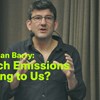belonging

Annie Woube
I am an Associate Professor of Ethnology and conduct research on leisure and various forms of self-realization, with a focus on gender constructions, gender equality, and social equality. In my curren
Christian Barry: Which emissions belong to us?
Place:Holländargatan 13, Stockholm, or online.REGISTERAbstractTo address climate change we need to reduce net emissions globally. Most international processes and frameworks have involved seeking to g

Which emissions belong to us?
To address climate change we need to reduce net emissions globally. Most international processes and frameworks have involved seeking to get countries to make cuts to their emissions. Net zero has rec
Living Alone Together: Individualized Collectivism in Swedish Communal Housing
Sociology, first published online,doi.org/10.1177/0038038519834871 Abstract In this study, situated in urban Stockholm, communal housing stands out as highly individualized. The residents positively app
“I just want to be the friendly face of national socialism” The turn to civility in the cultural expressions of neo-Nazism in Sweden
in: Nordicom Review, Volume 42: Issue S1This article is based on a case study of the media narratives of the neo-Nazi organisation Nordic Resistance Movement (NRM) and situates this particular actor w
Criminal nomads: The role of multiple memberships in the criminal collaboration network between Hells Angels MC and Bandidos MC
Global Crime vol. 23, no 2 Abstract Outlaw motorcycle gangs (OMGs) have received increased atten-tion from both law enforcement agencies and the research com-munity. This study investigates the criminal
Bashir Bashir: Egalitarian Binationalism for Israel/Palestine.
Venue: Institute for Futures Studies, Holländargatan 13 in Stockholm Research seminar with Bashir Bashir, associate professor of political theory at the Open University of Israel and a senior research
Predicting Alcohol Misuse Among Australian 19-Year-Olds from Adolescent Drinking Trajectories
Substance Use & Misuse, doi.org/10.1080/10826084.2018.1517172. AbstractBackground: Alcohol use in adolescence predicts future alcohol misuse. However, the extent to which different patterns of adol This study investigated how adolescent trajectories of alcohol consumption during the school years predict alcohol misuse at age 19 years. Data were drawn from 707 students from Victoria, Australia, longitudinally followed for 7 years. Five alcohol use trajectories were identified based on the frequency of alcohol use from Grade 6 (age 12 years) to Grade 11 (age 17 years). At age 19 years, participants completed measures indicating Heavy Episodic Drinking (HED), dependency – Alcohol Use Disorders Identification Test (AUDIT) and social harms. At 19 years of age, 64% of participants reported HED, 42% high AUDIT scores (8+), and 23% social harms. Participants belonging to a steep escalator trajectory during adolescence had twice the odds at 19 years of age of high AUDIT scores and social harms, and three times greater odds of HED than participants whose alcohol use slowly increased. Stable moderate consumption was also associated with an increased risk of HED compared to slowly increasing use. Abstinence predicted a reduced likelihood of all forms of misuse at 19 years of age compared to slowly increased alcohol use. Trajectories of drinking frequency during adolescence predict alcohol misuse at age 19 years. Although rapid increasing use presents the greatest risk, even slowly increasing drinking predicts increased risk compared to abstinence. The findings indicate that alcohol policies should recommend nonuse and reduced frequency of use during adolescence.

Bashir Bashir: Egalitarian bi-nationalism for Israel/Palestine
Research seminar with Bashir Bashir, associate professor of political theory at the Open University of Israel and a senior research fellow at the Van Leer Jerusalem Institute. This talk argues that eg
A negative attitude toward immigration, the parliament and societal change, unite those who vore for the Sweden Democrats
During the last couple of decades, Europe has experienced significant political change as a result of new political parties that have emerged in many countries. We can see this development also in Swe








